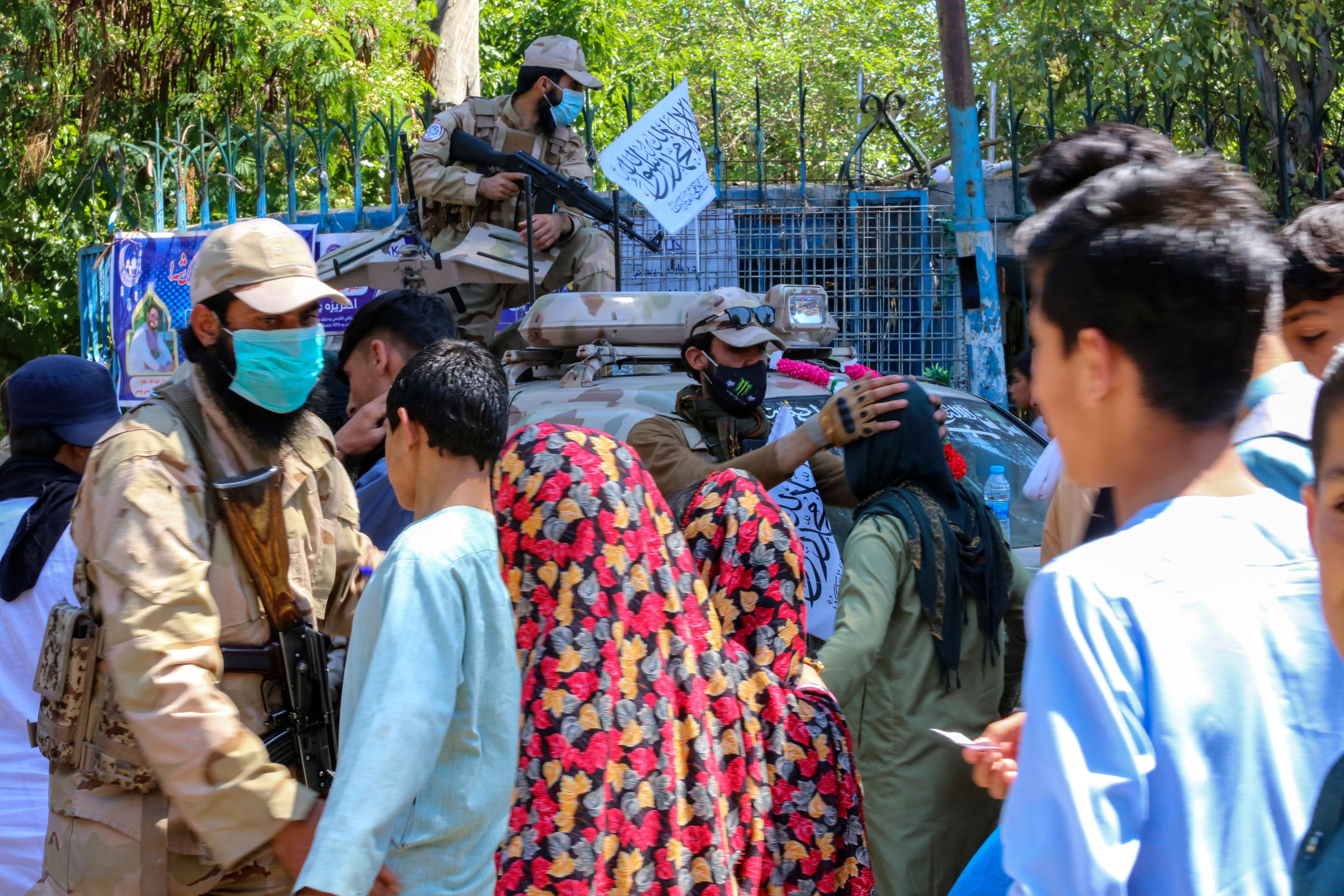Taliban orders women not to take part in Eid celebrations in two Afghan provinces
Women ‘forbidden’ from going out in groups during Eid ul-Fitr in two Afghanistan provinces

Your support helps us to tell the story
From reproductive rights to climate change to Big Tech, The Independent is on the ground when the story is developing. Whether it's investigating the financials of Elon Musk's pro-Trump PAC or producing our latest documentary, 'The A Word', which shines a light on the American women fighting for reproductive rights, we know how important it is to parse out the facts from the messaging.
At such a critical moment in US history, we need reporters on the ground. Your donation allows us to keep sending journalists to speak to both sides of the story.
The Independent is trusted by Americans across the entire political spectrum. And unlike many other quality news outlets, we choose not to lock Americans out of our reporting and analysis with paywalls. We believe quality journalism should be available to everyone, paid for by those who can afford it.
Your support makes all the difference.The Taliban has banned women from participating in Eid gatherings in two provinces in Afghanistan ahead of widespread celebrations expected in the country to mark the end of Ramadan.
Two similar notices showed local Taliban leaders in northern Baghlan and the northeastern province of Takhar said “it is forbidden for women to go out in groups during the days of Eid ul-Fitr” on Friday.
The orders are not thought to be applicable across the rest of Afghanistan.
This comes just weeks after the Taliban’s latest set of restrictions have banned families and women from visiting restaurants with gardens or green spaces in Afghanistan’s northwestern Herat province.
An official said the order banned women from visiting restaurants with gardens after complaints from religious scholars and members of the public who were against mixing of genders in such spaces.
Earlier this week, the reclusive top leader of Afghanistan, Hibatullah Akhundzada, released his Eid message to the country in five languages – Arabic, Dari, English, Pashto and Urdu.
In the end of the Ramadan message, Mr Akhundzada praised the Taliban for making “progress” in Afghanistan after taking over the control of administration in August 2021.
“The bad intellectual and moral effects of the 20-year occupation are about to finish,” he said and extolled “living in the light” of Sharia or Islamic law.
The leader is believed to have played a strong role in dictating domestic laws and policies in Afghanistan, especially those concerning banning the education of girls after the sixth grade and barring Afghan women from public life and work in non-governmental organisations and the United Nations.
Women in Afghanistan have already been banned by the Taliban in public spaces like parks and gyms. The measures have triggered a fierce international uproar, increasing the country’s isolation at a time when its economy has collapsed — and worsened the humanitarian crisis.





Join our commenting forum
Join thought-provoking conversations, follow other Independent readers and see their replies
Comments